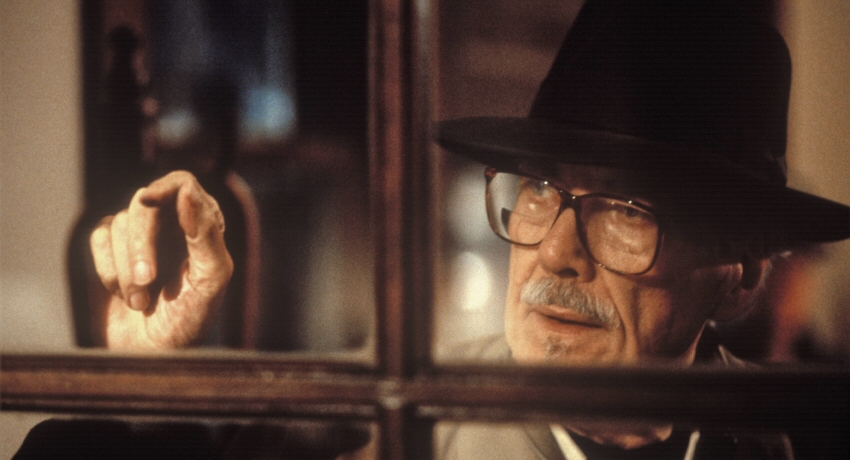
LiTTLE-LOVED
ALTMAN
eric pfriender
In this nine-part series, The Pink Smoke will be plumbing the murky depths of the filmography of legendary director Robert Altman, a master of le cinema who in his wildly inconsistent career created not only some legendarily awful movies, but at least a dozen films overlooked and half-remembered even by his admirers.
We'll be skipping consensus "secret masterpieces" like Thieves Like Us or Tanner '88 in order to focus on his most polarizing, universally despised and simply forgotten films.
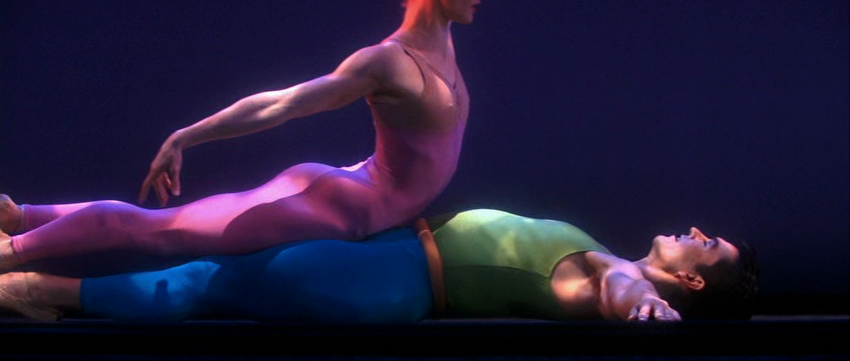
THE COMPANY
robert altman, 2003.
I was a little worried when I picked The Company to write about for this series. I was lucky enough to have seen a preview of the film with Altman himself in attendance back in '03, when the film was about to be released. I loved the film then, but as I was sliding the Netflix'd disc into my Playstation, I started to worry that the "event" of seeing the film with the director present may have colored my impressions of it a bit too much. This deep into this series, it seems like most of Altman's films we're writing about, all of which history has either forgotten or reviled, have proved to in fact deserve their fate. So I'm happy to report that The Company, which seemed like it was going to be a weird Neve Campbell vanity project when it was announced, is in fact a masterpiece.
In short, The Company follows Chicago's Joffrey Ballet Company through a season of shows and rehearsals. If that ultra-concise synopsis makes it sound as if the film will be riddled with dance film cliches, fear not. While there is an injury to a lead dancer that gives a young up-and-comer her shot, it happens with so little drama that it would be easy to not even notice what's happened. There is also a potentially career-ending injury before a big show, but again it's treated in such a matter-of-fact manner that the moment is fascinating because you are watching what feels like an authentic reaction to a moment that is genuinely sad and frustrating, as opposed to overheated theatrics. There is even an intra-company romance, but it's dispersed in a few mumbles early in the film only to pop up again briefly, played as nuanced, detailed behavior the audience is privileged to witness rather than the high melodrama we're trained to expect.
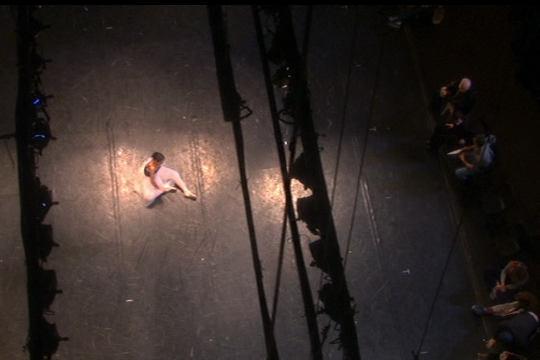
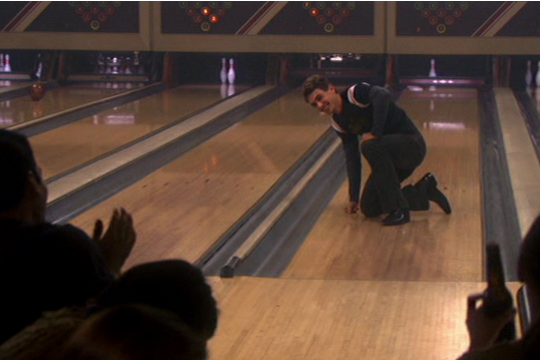
It would be easy to classify The Company as a contemporary neo-realist masterpiece. Almost all of the actors are in fact non-actors. Most of the cast is made up of the actual dancers from Joffrey Ballet. Ostensibly, it stars Neve Campbell and James Franco, but their performances disappear almost completely into their character's jobs. (Campbell danced for years before breaking through on Party of Five, and she holds her own with the rest of The Company - aside from a memorable duet, she's barely even a featured player in some of the dances; Franco is there to be handsome and make an omelette.) In a way the film is neo-realist, but it also fits comfortably with Altman's run of genre-revisionist masterpieces from the 70's. McCabe & Mrs. Miller subverted the western, The Long Goodbye the P.I. thriller, Thieves Like Us the period gangster film. Here, Altman reinvents the dance picture. His method could be summed up as "Look at these actors wandering around inside this genre movie while the plot machinations grind away around them." In that sense, The Company looks even more miraculous by comparison. Replace "actors" with "people" and you get the idea. The film feels like it achieves a sense of naturalism in performance Altman had been trying to capture for three and a half decades.
There are some beautiful touches. One sequence follows an outdoor performance as a rainstorm approaches and then strikes. I've watched it a few times now, and it's stunning the way it juggles all of the different elements - the storm slowly building, the company director in the audience growing worried, the backstage details and the performance itself. Ultimately, the rain and lightning flashes serve to heighten the beauty of what is already an amazing performance on the stage, but the real beauty here is the delicate editing work.
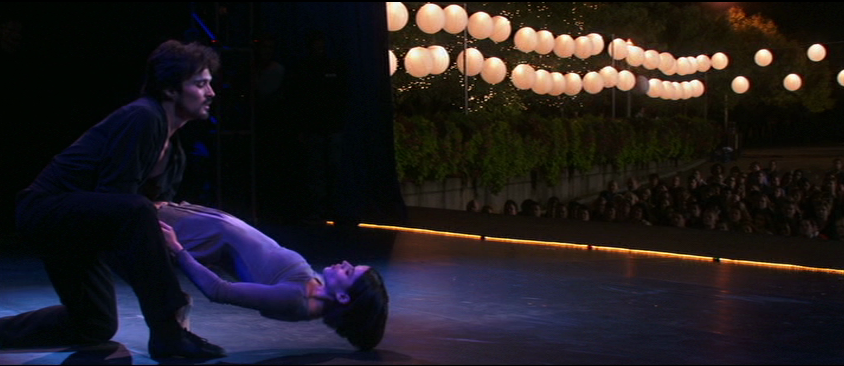
The film also gets the feel of a rehearsal right. It's not just the performances. Between my wife's dance company and the theater company I work with occasionally, I've been in enough rehearsal spaces to know what they feel and sound like, and The Company nails it.
All of the dances are performed beautifully, but that was to be expected. The important thing is that they were also shot perfectly, with the right amount of audience perspective mixed with backstage glimpses, all put together seamlessly.
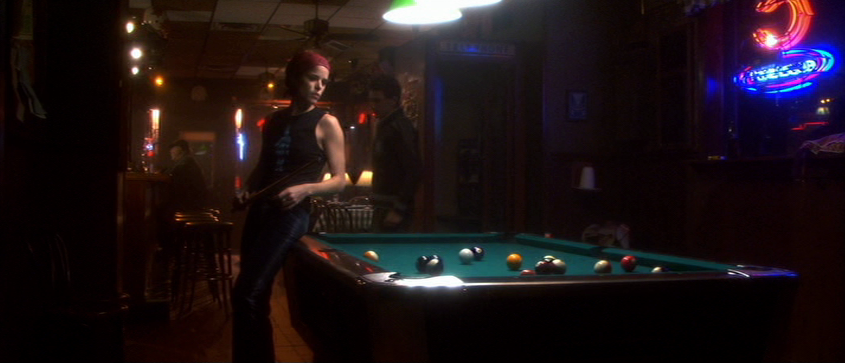
The Company is really a film about Process. The Process of putting on a show. The Process of taping your ankle and putting on your point shoes. The Process preparing for rehearsal. A great example is a scene that I remembered best from my original viewing. It's basically a flirtation/seduction scene, but it's silent and played out over a pool table. The girl is at the bar, unwinding. The boy walks in and notices her. She walks over to the pool table, at first oblivious to him. She racks the balls, chalks her cue and her thumb and breaks. She then methodically begins circumnavigating the table, lining up shots and potting the balls one by one as he watches. Eventually she notices him as well, and suddenly she's performing again, just like on stage. He's a cook. The next morning, in her apartment, we watch him prep and cook an omelette for breakfast. Process.
The romance between the aforementioned man and woman is one of the film's few plot strands. The man and woman are played by the film's two ostensible leads, but again any drama is downplayed. There are a few scenes of them on the couch together, he accompanies her to meet her friends out bowling, they cook, they both get home late after working New Year's Eve. One of the film's great touches is "My Funny Valentine" recurring during many of these scenes, but each time we hear it, it's a different artist's version of the song. Simple, but awesome.
The only other recognizable actor in the film is Malcolm McDowell playing Mr Antonelli, the company's Artistic Director. In many ways it's a showy performance, and a few of the film's laughs come from watching Mr. A be the man in charge of every room that he's in and the manner in which he wields his id. But even though the performance is outsized, it never feels wrong. Apparently McDowell studied the actual head of the Joffrey closely, and the resulting performance feels, like everything else in the film, somehow pitch-perfect. Spend enough time in the world of the arts, especially the arts that need wealthy donors in order to continue to produce work, and you'll recognize Mr. A's combination of talent, ego and charm immediately.
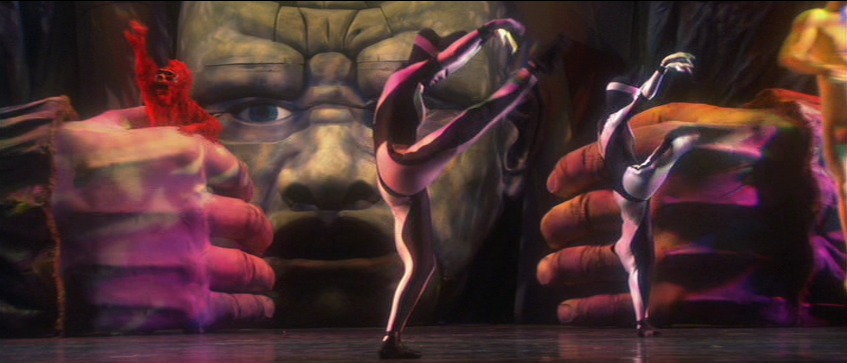
One of the film's plot strands that weaves its way through the film is the production of a new ballet. Midway through the film, the choreographer comes in (from Canada) and pitches his new piece "The Blue Snake" to Mr. A and his close staff. Each time I watch the film, it feels like this is the moment the film is going to veer off the rails and suffer from the same condescending sarcasm that Altman brought to Prêt-à-Porter (which Funderburg excoriates here.) The choreographer drones on about primary colors and balloons tied to people's heads symbolizing the innocence and wonderment of childhood, and it's clear at some point that Altman thinks this guy is hilarious, and wants us to laugh at him and all of his silly pretensions. And in a way we do, but here's the thing: the film never does, because the dancers never do. For the Joffrey Ballet, which comprises most of the cast, this is just another choreographer coming in with a new ballet for a new season, and they've seen it all before. So they take the piece seriously and the film never approaches it with the condescension it might have originally intended (even when the ballet is ultimately staged, along with its most ridiculous touch - an animatronic puppet of a giant onstage that says "Fee Fi Fo Fum" and eats the dancers.) The film narrowly dodging its own attempt to mock the subculture it is depicting goes a long way towards saving it.
The Company is great. Reading what I've written above, you might be inclined to think the film is a slog to watch. ("It's a film about a modern ballet company, but the director has drained all of the drama and plot out of the script, and all of the performances feel like you're just watching people go about their business!") But it's not, it's a joy. And it's fascinating. And it's probably Altman's last truly great film.
~ 2012 ~







